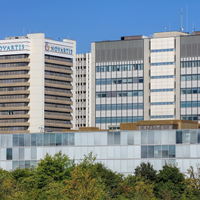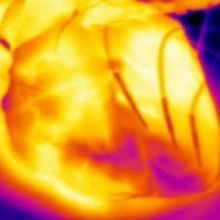heart attack

Protein-Recycling Process Protective Against Arterial Plaques
Clare Watson | Aug 1, 2022 | 2 min read
A team of scientists has found that in mice, a cellular housekeeping pathway protects against a major cause of heart attacks and strokes.

Mapping Out What Makes the Heart Tick
Nathan Ni, PhD | Jun 27, 2022 | 3 min read
A novel atlas reveals region-specific links between structural, mechanical, and genetic properties within the heart.

The Scientist Speaks Ep. 13 - The Long Haul: Improving Cardiac Cell Therapy Persistence
Niki Spahich, PhD | 1 min read
Researchers remuscularize the heart after cardiac infarction with stem cell-derived cardiomyocytes and ready-made microvessels.

How a Prominent Mexican Scientist Wound Up a Spy for Russia
Natalia Mesa, PhD | May 5, 2022 | 4 min read
Hector Cabrera Fuentes, a renowned cardiovascular researcher, collaborated with Russian intelligence agents for more than a year, prosecutors said.

Doctors and Researchers Probe How COVID-19 Attacks the Heart
Dan Robitzski | Jan 12, 2022 | 8 min read
Experts have a decent grasp on how COVID-19 impacts cardiovascular health in the near term. The implications of long COVID, however, remain mysterious.

CAR T Cells Mend Broken Mouse Hearts
Sophie Fessl, PhD | Jan 6, 2022 | 4 min read
Specialized immune cells generated in vivo reduce cardiac scar tissue in mice, a new study shows.

Fat Cells Send Mitochondrial Distress Signals to the Heart
Ruth Williams | Aug 20, 2021 | 3 min read
Vesicles containing fragments of the organelles released from stressed adipocytes protect the heart against oxygen deprivation, a study in mice shows.

Infographic: Pathways from Noise to Cardiovascular Damage
Thomas Münzel and Omar Hahad | Jun 1, 2021 | 2 min read
Research in mice and humans points to oxidative stress and inflammation as likely drivers of noise-induced health effects such as hypertension and heart disease.

How Environmental Noise Harms the Cardiovascular System
Thomas Münzel and Omar Hahad | Jun 1, 2021 | 10+ min read
Sound from cars, aircraft, trains, and other man-made machines is more than just annoying. It increases the risk of cardiovascular disease.

Heart Attack Elevates Risk of Breast Cancer Recurrence: Study
Amanda Heidt | Jul 13, 2020 | 4 min read
Mice that experienced heart attacks underwent a large-scale shift in their immune systems that allowed cancer to flourish, perhaps explaining the observation in patients.

Image of the Day: Repairing Hearts
Emily Makowski | Jan 7, 2020 | 2 min read
A growth factor treatment helps improve cardiac functioning after heart attack in pigs.

Gene Editing Makes Cells Evade Immune Attack In Vitro
Emma Yasinski | Dec 12, 2019 | 3 min read
To advance the possibility of off-the-shelf cardiac cell therapies, scientists devise an engineered cardiac stem cell that avoids stimulating a detrimental immune attack.

Activation of the Immune System Underlies Cardiac Cell Therapies
Ruth Williams | Nov 27, 2019 | 4 min read
A study in mice reveals that stem cell transplants, currently in clinical trials, may not actually require the cells.

Novartis’s $9.7 Billion Purchase Includes Novel PCSK9 Inhibitor
Emily Makowski | Nov 25, 2019 | 2 min read
The pharmaceutical firm is buying The Medicines Company, which recently devoted its efforts into developing the cholesterol-lowering medication.

Gene Mutation Could Explain Humans’ High Risk of Heart Attack
Shawna Williams | Jul 23, 2019 | 2 min read
Mutating a gene called CMAH in mice so it’s nonfunctional, as in humans, upped the animals’ chances of developing heart disease, a study finds.

Image of the Day: Scarred Hearts
Ashley Yeager | Dec 4, 2018 | 1 min read
Maps of diving cells before and after heart attacks in mice offer additional evidence against the existence of cardiac stem cells.

Mitochondrial Infusions Given to Babies with Heart Damage
Kerry Grens | Jul 10, 2018 | 1 min read
Among 11 infants treated to date, most survived and their heart function improved.

Cardiac Cell Transplants Help Monkeys’ Hearts
Ashley Yeager | Jul 2, 2018 | 2 min read
The organ’s blood-pumping capacity improved with the infusion of cells, a study shows.

Image of the Day: Cold Hearted
The Scientist and The Scientist Staff | Jan 22, 2018 | 1 min read
Cardiologists have found a way to cool the human heart in a localized way to help reduce muscle damage from heart attacks.
